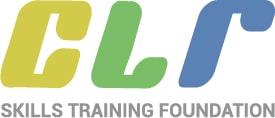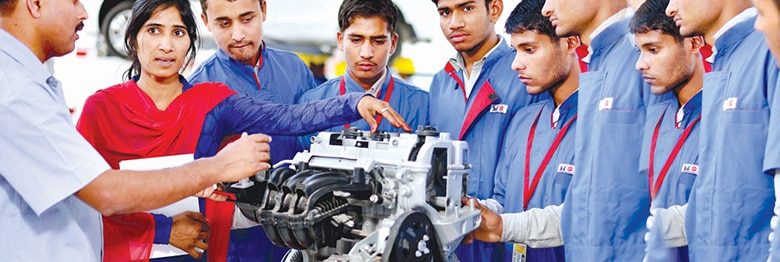India’s evolution to a knowledge-based economy requires an innovative new breed of educated and skilled people. Until unless we are innovative there is no chance that we can grow. Its competitive advantage will be dependant on its citizen’s power to create, share, and employ skills properly. A knowledge-driven economy requires, India to build up professionals—knowledge workers and knowledge technologists—who are open to changes and analytical, and who can act as the guiding force for innovation and economic development. To win this trophy India needs a flexible educational system: the right basic education to produce the motivation for learning; secondary and tertiary venues of education need to develop the core capabilities and core technical skills; and an additional method of achieving lifelong learning will be a new feather in the cap. The education system should be calibrated to your new global environment by promoting creativity and improving the quality of education and training at all levels. In a globalized economy, having a large pool of skilled workers is essential for attracting new and large industrial investment including foreign direct investment. Developing skilled workers improves the efficiency and overall morale of this labor market; reduces skills bottlenecks, enables absorption of skilled workers into gainful employment and hence boosting the economy, and in turn improving their job security. It is very important to develop quality secondary and tertiary education plus in vocational education and training (VET) if India’s economy is to develop and remain competitive in world markets (World Bank, 2008).
According to the 12th Five Year Plan document of the Government of India, Planning Commission, 2013 there is an immediate requirement to have mainstream skill development within the formal education system, and at the same time frame for innovative approaches for the skill creation beyond your education system that is formal. The gaps in skill development are to be identified so as to achieve the objectives in terms of quantity, quality, outreach, and mobility while building on the foundation although the government’s Coordinated Action on Skill Development has brought about a paradigm shift in addressing the issues of relevance in skill development. Further, a few of the areas that merit attention, according to the Plan are (a) the process of reaching out to the non-formal sector; (b) investing in place a National Skills Qualification Framework which lays down different levels of skills required by industry, that allows multiple points of entry and exit, which recognises prior learning, and makes it possible for for mobility across different levels; (c) investing in place a permanent institutional framework, entrusted with the requisite authority and resources, and that is responsible solely for skill development in the united states; and (d) support to students with regards to of usage of loans from banks on soft terms that are linked to their placement. Thus, appropriate infrastructure should be created keeping in view the sheer numbers, sectoral division and spatial disbursal not just in the united states but possible requirement various other areas of the world. This can be also reiterated by Dilip Chenoy (2013), former Managing Director and CEO of National Skill Development Corporation (2013) who says “with the setting up of the economy and increase in exports, enhancing the productivity associated with workforce is a key challenge for many corporations and entities in India. Further, while the economy that is Indian, a lot of skilled persons would be expected to sustain this growth. Current studies indicate that net enrolment in vocational courses in India is approximately 5.5 million per compared to 90 million in China and 11.3 million in the United States (US) year. A mere 2 percent of Indian workers are formally skilled”.
#innovative #india
This article is inspired by the article skill development in INDIA published at science direct.






